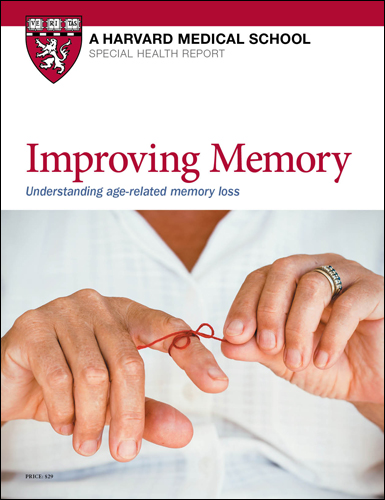Don't buy into brain health supplements

Forget about those over-the-counter products that promise better memory.
A recent survey found that about 25% of adults over age 50 take a supplement to improve their brain health with the promise of enhanced memory and sharper attention and focus.
The problem? There's no solid proof any of them work.
The main issue with all over-the-counter supplements is lack of regulation. The FDA doesn't oversee product testing or ingredient accuracy — they just look out for supplements that make health claims related to the treatment of specific diseases.
In terms of brain health, this means a supplement manufacturer can claim a product helps with mental alertness or memory loss — but not that it protects against or improves dementia or Alzheimer's disease. This way manufacturers don't have to back up any claim that their product is effective.
A combination of nutrients
Many brain supplements focus on omega-3 fatty acids (such as those found in fish oil), vitamin E, various B vitamins, or various combinations. Why these?
There's strong evidence that certain diets — like the Mediterranean diet, the DASH diet, and the MIND diet — can help improve cognitive function.
These diets contain foods with large amounts of these vitamins and minerals. But what is not clear is whether it's the combination of nutrients in these diets that's beneficial, or whether it's specific ones or even certain amounts, or some other factors. Researchers have tried to answer these questions by testing how these individual nutrients affect cognitive health. So far the limited studies have found no evidence they help, with a few rare exceptions.
Still, this doesn't mean that the brain supplements may not work. It's just that there is not much, if any, evidence from randomized clinical trials — the gold standard for research — on isolated vitamins or minerals and brain health.
Here's a summary of what science has found so far and what it means.
Omega-3 fatty acids (fish oil)
There are three types of omega-3s: eicosapentaenoic acid (EPA) and docosahexaenoic acid (DHA) — which are found mostly in fatty fish like salmon and mackerel — and alpha-linolenic acid (ALA), which is found in leafy green vegetables (Brussels sprouts, spinach), vegetable oils (canola, soybean), and nuts and seeds (walnuts, flaxseeds).
The body coverts ALA into EPA or DHA, but only in small amounts, so the best way to get high amounts of EPA and DHA is by eating more fish.
Omega-3s help build cell membranes in the brain and also may have anti-inflammatory and antioxidant effects that could protect brain cells.
Fish is a staple in the Mediterranean and MIND diets, among others, and studies have found an association between higher intake of fish and a lower risk of cognitive decline. However, omega-3 supplements haven't shown the same effect. Any benefit seems to come from a greater intake of fish and not from taking fish oil supplements.
What the leaves say about ginkgo bilobaThe fan-shaped leaves of the ginkgo tree are used in traditional Chinese medicine to treat all kinds of ailments. In the United States, the extract from the leaves is sold as a supplement commonly called ginkgo biloba. One of its main selling points is as a memory enhancer. However, as with other brain health supplements, the science doesn't support the claims. One of the largest clinical trials that explored the possible link was the Ginkgo Evaluation of Memory (GEM) study. Researchers recruited more than 3,000 older adults, average age 79, 54% of whom were men, with normal cognitive function or mild cognitive impairment. Everyone was given either 120 milligrams of ginkgo or a placebo twice a day for almost six years. (This amount was chosen based on previous research.) The results found that ginkgo biloba did not lower the overall rate of developing dementia. |
Thinking about supplements
So, the question remains: with no evidence, why do people still buy in to brain health supplements? A major reason, it's easier to take a pill than to make lasting lifestyle changes. Instead, invest in doing more exercise and following a plant-based diet. These can help with memory and brain health in the long term more than any supplement.
Image: nicomenijes/Getty Images
Disclaimer:
As a service to our readers, Harvard Health Publishing provides access to our library of archived content. Please note the date of last review or update on all articles.
No content on this site, regardless of date, should ever be used as a substitute for direct medical advice from your doctor or other qualified clinician.
















